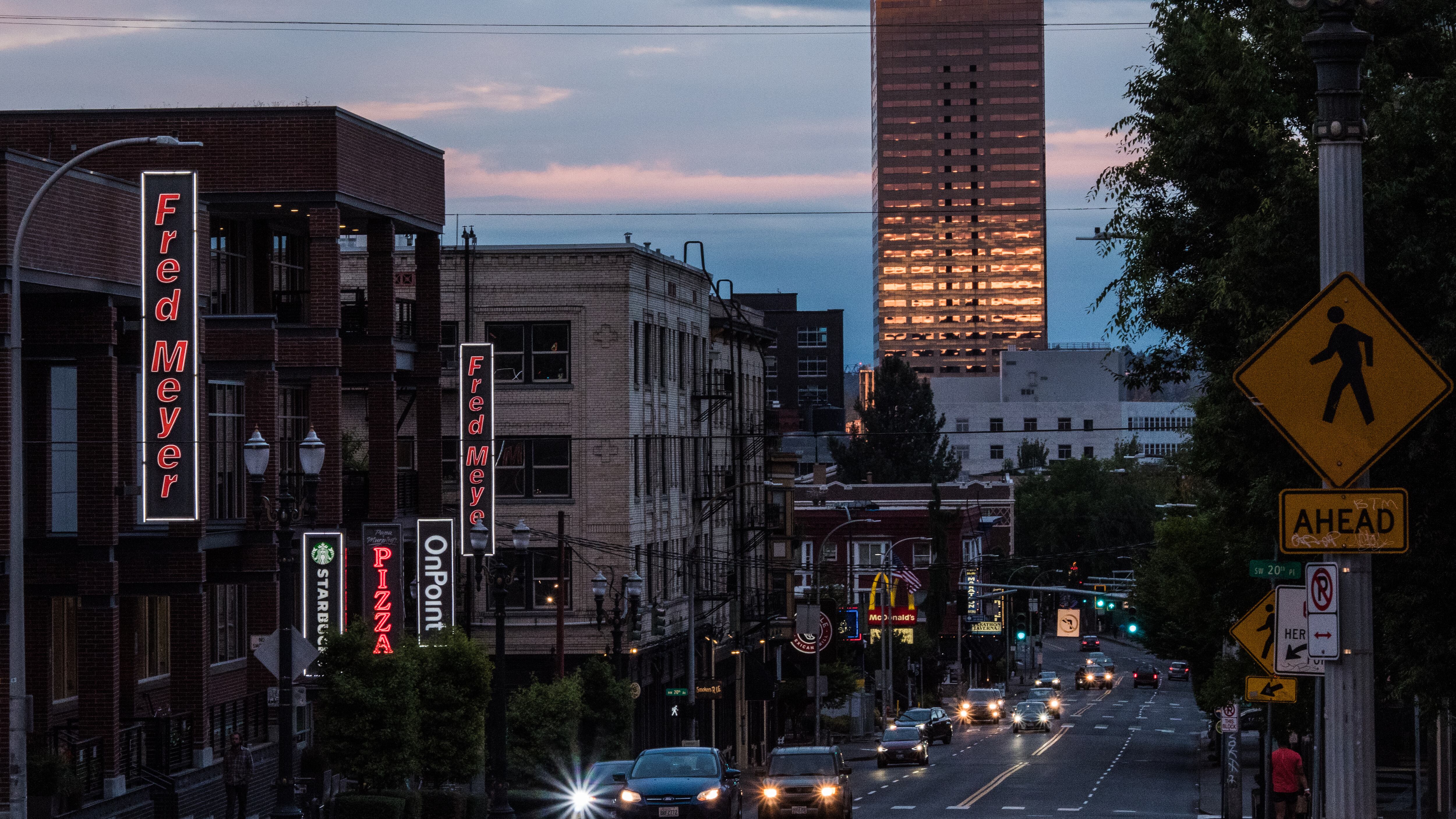Transportation advocacy group Northwest Active Streets sent a letter to City Commissioner Mingus Mapps on Feb. 6, urging that he direct the Portland Bureau of Transportation to lower the speed limit on West Burnside street after a string of crashes, two of which were fatal.
The group, which advocates primarily for safety measures in Northwest Portland, cited two fatal crashes in September and December. (PBOT says 66 people died last year in traffic.)
“While the recent pedestrian crash in our neighborhood causing non-life-threatening injuries to U.S. Representative Suzanne Bonamici and federal Judge Michael Simon received statewide media attention,” the signatories wrote, “less-publicized pedestrian crashes on West Burnside less than six blocks away killed two people.”
The current speed limit on the thoroughfare, which serves as a primary connector between the east and west business corridors, is 25 miles per hour. Northwest Active Streets wants that limit reduced to 20 mph.
Data by the U.S Department of Transportation shows that the likelihood of a crash resulting in a fatality or serious injury increases from 10% to 40% when the speed limit increases from 20 mph to 30.
“West Burnside is a designated High Crash Corridor due to frequent and severe pedestrian crashes and is one of the only remaining High Crash Corridors where safety needs have gone unaddressed,” the letter reads. “Reducing speed is the primary tool to address pedestrian crashes.”
The 20 mph zone the group wants to institute would stretch from Northwest 25th Avenue to Southwest 2nd Avenue.
Mapps is now leading a notoriously difficult and controversial bureau. Traffic deaths have continued to rise in the years after the Portland City Council approved a multimillion-dollar policy aimed at eliminating them.

